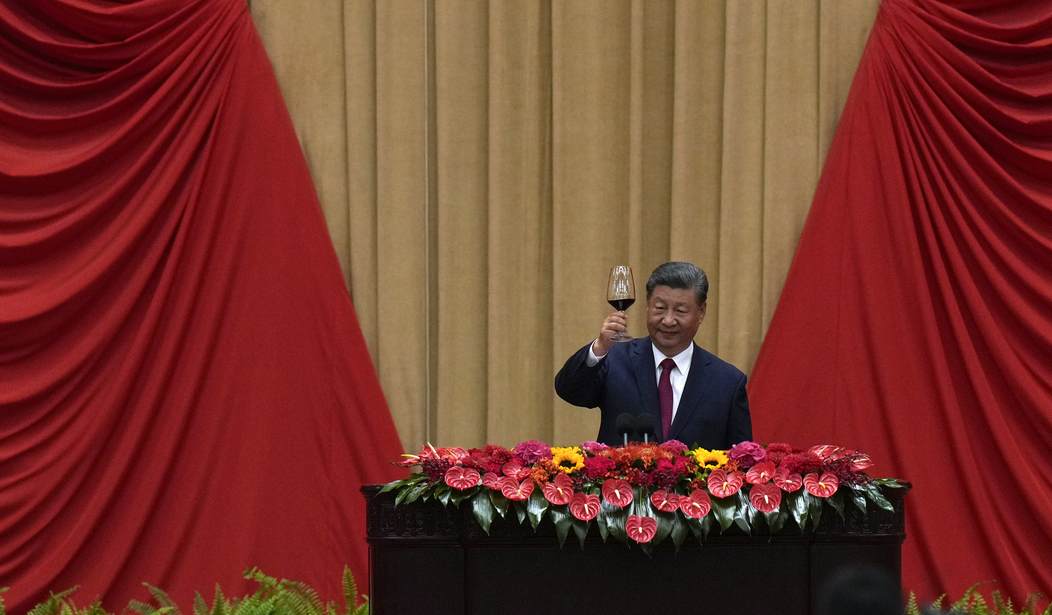Officially, China's economy grew at 4.6% in the 3rd quarter, only slightly behind the 4.7% rate in the 2nd quarter. However, that growth is no distributed evenly and some parts of China are falling way behind.
Only five mainland provinces are seeing real gross domestic product growing faster this year than the whole of last year, according to Bloomberg calculations based on official figures. Of the 26 provinces that have reported third-quarter data, 11 experienced a steeper deceleration than the national slowdown.
The worst performers so far this year are Tibet, Jilin and Hainan, whose 3.2% gain is 6 percentage points lower than in 2023. Even economic powerhouses such as Zhejiang, Shanghai and Jiangsu saw GDP growth slow.
Guangdong, which made up more than 10% of the economy last year, expanded just 3.4%, the weakest result since the pandemic and down 1.4 percentage points from the whole of 2023.
Numbers out Monday show industrial profits hitting a major slump, the worst performance since the pandemic.
China’s industrial profits in September dropped at its fastest pace since the pandemic, data from the National Bureau of Statistics showed, as the country tussles with an economy plagued by slow growth, lack of demand and a property crisis.
After a 17.8% fall in August, industrial profits declined 27.1% in September from a year ago, marking the steepest plunge since March 2020, when it dropped by 34.9%, according to data kept by Wind Information.
As a result of the slow recovery, some foreign firms are scaling back their activity.
Big names including Hermes (HRMS.PA), opens new tab, L'Oreal (OREP.PA), opens new tab, Coca-Cola (KO.N), opens new tab, United Airlines (UAL.O), opens new tab, Unilever (ULVR.L), opens new tab and Mercedes (MBGn.DE), opens new tab said Chinese customers are curbing spending as a property crisis drags on and youth unemployment stays high...
International food companies such as Danone (DANO.PA), opens new tab and Nestle (NESN.S), opens new tab have meanwhile deepened price cuts or are seeking to boost online shopping volumes.
Coca-Cola CEO James Quincey said on an Oct. 23 earning call that the operating environment in China remained challenging.
China has pumped about half a trillion dollars into its ailing property sector, but the IMF announced last week that it expects property to keep weighing the economy down into next year.
In a report published Tuesday, the IMF trimmed its forecast for growth in China for this year to 4.8%, 0.2 percentage points lower than in its July projection. In 2025, growth is expected to come in at 4.5%, according to the IMF.
The Washington, D.C.-based organization also highlighted that China’s property sector contracting by more than expected is one of many downside risks for the global economic outlook.
“Conditions for the real estate market could worsen, with further price corrections taking place amid a contraction in sales and investment,” the report said.
Hovering over all of this is the fact that China's population has started to slump, making it less likely it will be able to overcome these problems in the long term. I'll wrap this up with this story from August about closing kindergarten's across China.
In China kindergarten facilities host children of multiple ages up to the start of compulsory elementary education, typically at six years old. But the number of kindergartens in the country shrank by 20,000 between 2021 and 2023, according to the Ministry of Education, from 294,832 to 274,480. Amid a falling birth rate, gloomier job prospects for younger people in the world's second-biggest economy and a crackdown on profit-driven education, most of the closures have been private schools.
Parents used to line up in front of school gates, sometimes overnight, to apply for the most popular kindergartens. Now, schools are scrambling to fill classrooms ahead of the new school year. The number of children enrolled in preschool education fell by 5 million in 2023 to 40.92 million, the lowest figure since 2014, while more than 170,000 full-time preschool teaching jobs disappeared last year, according to Ministry of Education data.
China's government has made increasing its birth rate a major focus since this summer but few countries have had much success turning around a decline in birth rates once the decline starts and China's current economic struggles probably make a turnaround unlikely anyway.








Join the conversation as a VIP Member